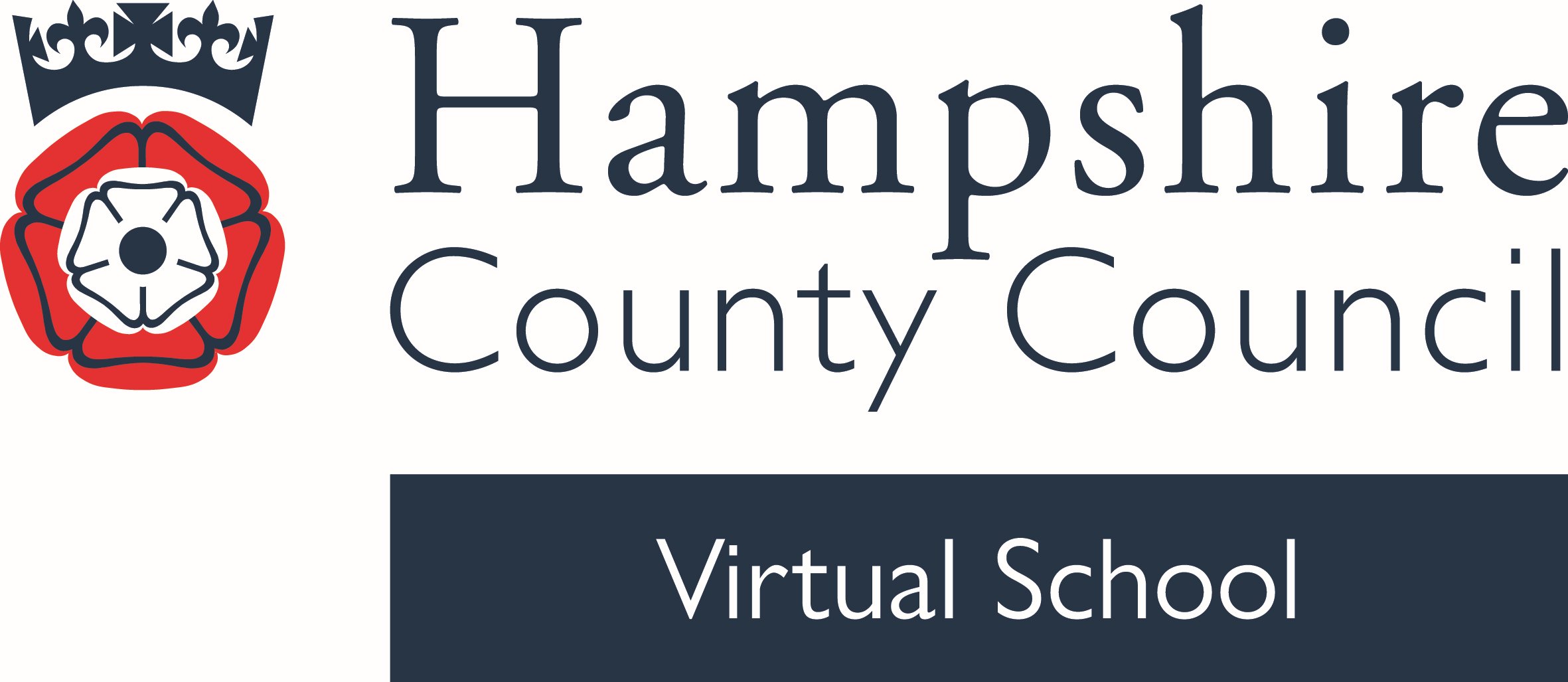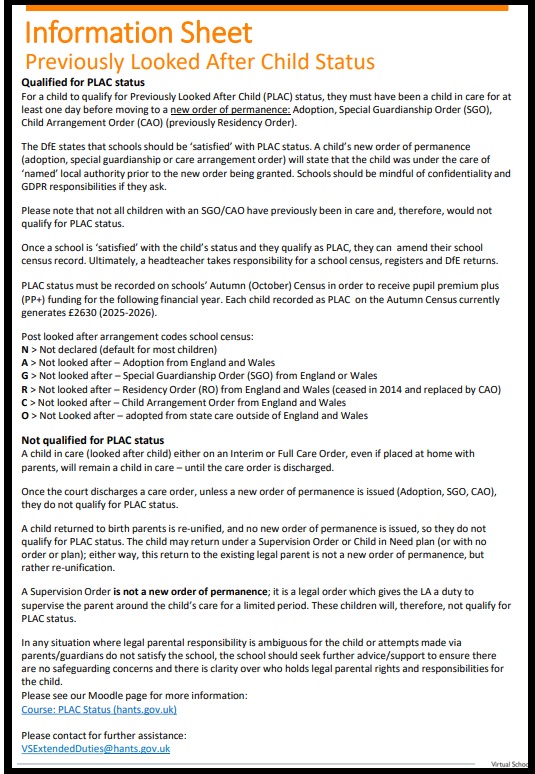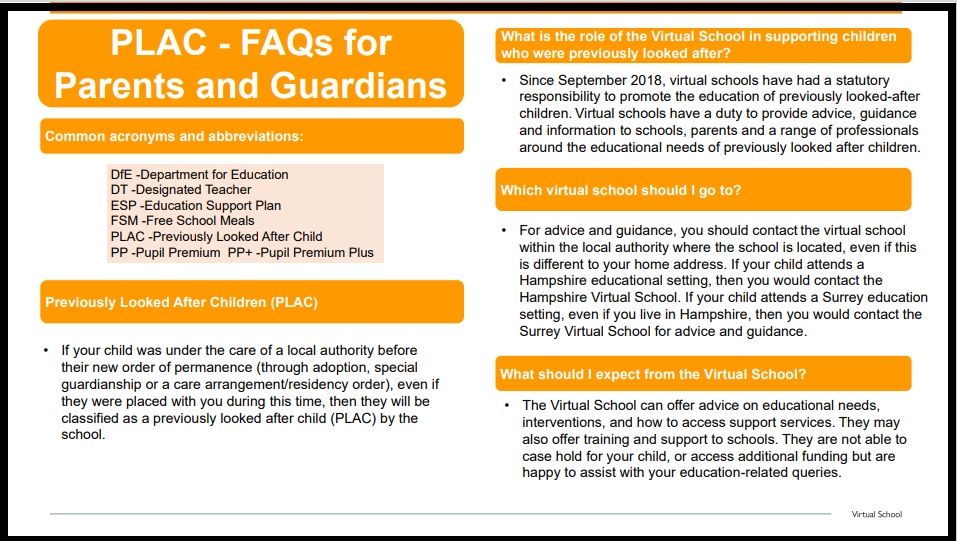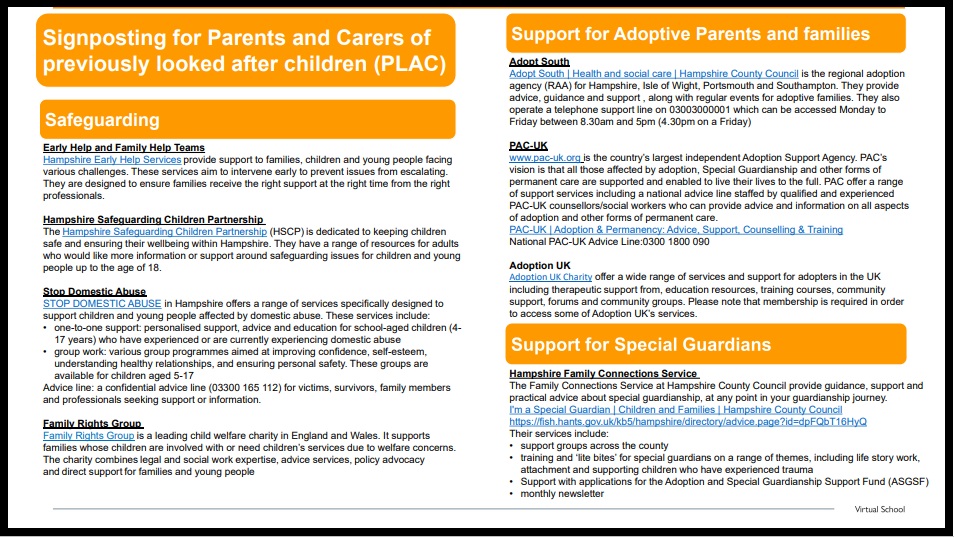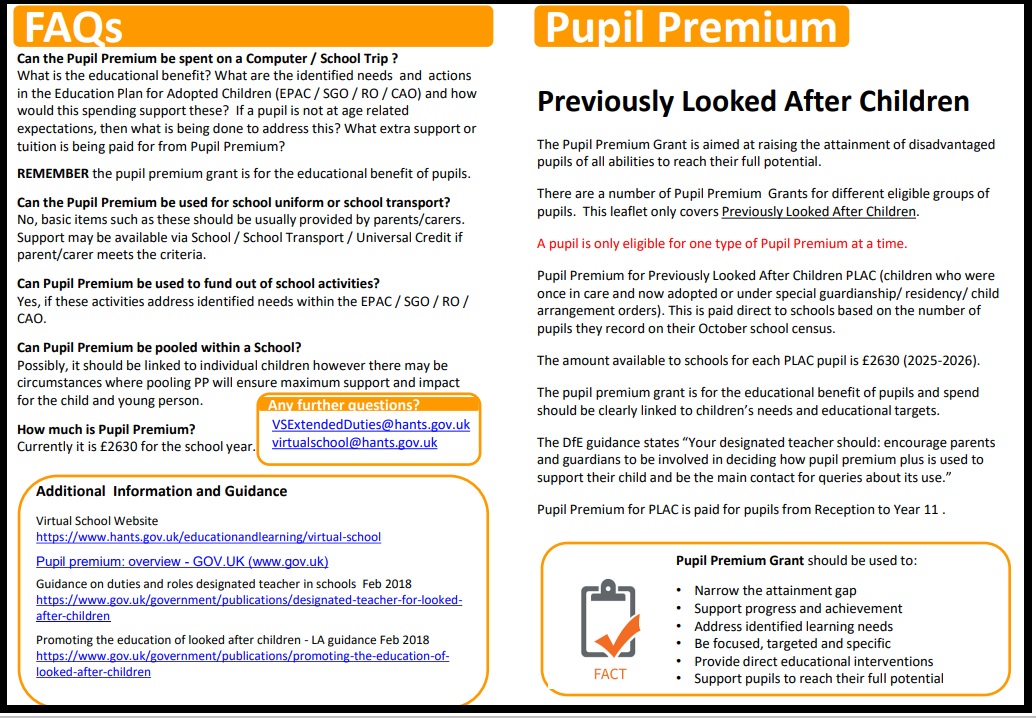Previously Looked-After Children
This brief video provides useful information for parents and carers.
Previously Looked-After Children – Key Information for Parents and Carers
The Virtual School has a statutory duty to provide advice and guidance to parents, carers, schools, education settings and other professionals to promote and improve the educational experiences and outcomes of previously looked after children (PLAC). Hampshire Virtual School provides this service for the families and associated professionals of children attending Hampshire schools, even if the child does not live within the county. If you live in Hampshire but your child attends school in a different local authority, then you should contact the Virtual School in the area that your child is being educated
Previously Looked After Child (PLAC) Status
For a child to be classified as PLAC, they must have been under the care of a Local Authority for one day or more before moving to a new order of permanence through adoption, a special guardianship order (SGO), care arrangement order (CAO) or a residency order (RO, issued up until 2014).
- A named Designated Teacher (DT) for looked after and previously looked after children. The DT is required to attend statutory training (run by the Virtual School) to fulfil their role.
- Positive partnerships that support you and your child with all aspects of school: supporting learning, attendance, social and emotional / pastoral needs and ensuring your child achieves well.
- Regular communication about the strengths and the needs of your child. Whilst it is NOT a statutory requirement, a personalised plan, such as an Education Support Plan (ESP), created collaboratively between school and home, is valuable.
- Shared information about the use of Pupil Premium (PP+) to support pupils in school.
- Regular communication with your child so that their voice is heard and listened to.
- Targeted, early intervention and support in response to any emerging needs
- Engagement with wider support, organisations etc
